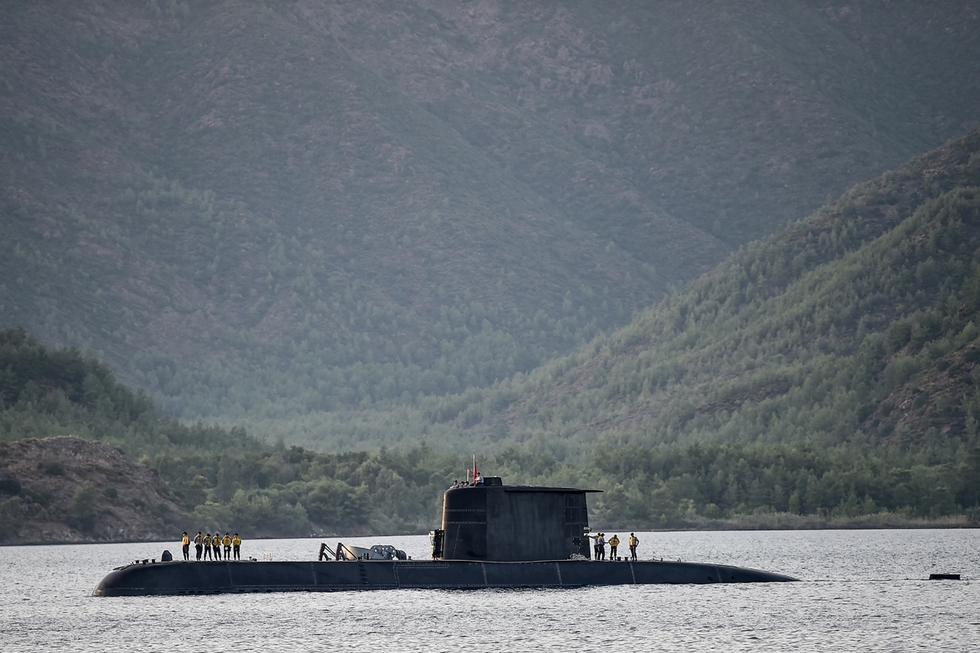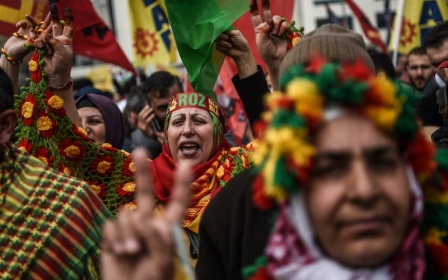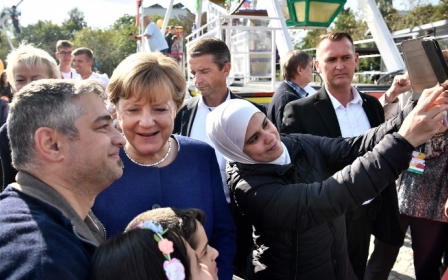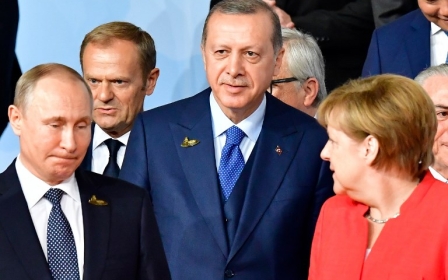Turkey presses ahead with Nato exercises despite Russian arms deal

Turkey on Wednesday was preparing to wind up naval exercises with fellow Nato members being held at a time when relations with several alliance states are strained and controversy has ignited over Ankara's plan to purchase weapons from Russia.
The Nato exercises, focused on submarine rescue operations and called "Dynamic Monarch," were taking place in Turkish waters in the Mediterranean Sea off the resort city of Marmaris and involved 1,000 personnel and nine countries including France, Britain and the United States.
The drill, the first in Turkey since 2000, is aimed at demonstrating multinational submarine rescue cooperation and interoperability. But its hosting by Turkey is also a symbol of Ankara's importance within the alliance during a tense period.
"I would just recognise that the Turkish navy have consistently continued to be one of the greatest supporters of my command," said the head of the Nato maritime force, Vice Admiral Clive Johnstone.
A Nato official, who asked not to be identified, added: "Turkey is essential for the security of Europe. It has Nato's second-largest army and makes an important contribution to the alliance, including our missions in Afghanistan, Kosovo and the Aegean Sea."
'Turkey is essential for the security of Europe. It has Nato's second-largest army'
The manoeuvres got underway earlier this month and the media were permitted to witness the drill on Wednesday, with the operation due to wrap up on Friday.
Even though Turkey is a part of Nato, its relations with several key alliance members, in particular Germany, have been damaged over the merciless crackdown after last year's failed coup.
Ankara in turn accuses EU states of failing to round up Kurdish militant and coup plot suspects.
Ties with the United States have been hurt by Washington's support of a Syrian Kurdish militia Ankara regards as a terror group.
The exercises come just a week after Turkey ruffled feathers within Nato by announcing it had signed a deal with Russia to purchase Moscow's sophisticated S-400 air defence systems.
Nato officials warned that interoperability of equipment was crucial between alliance members, but President Recep Tayyip Erdogan has shrugged off the warnings.
Analysts have warned that despite the signing, thorny issues still need to be resolved before delivery, including Turkey's demand for technology transfer and Russia's order backlog for the hardware.
Financial details have not been disclosed, but according to Russian reports the deal is worth $2bn, with Turkey seeking a credit from Russia to assist the payment.
Meanwhile, Erdogan said on Wednesday he will meet Russia's President Vladimir Putin next week to discuss a plan agreed by their countries and Iran to reduce the fighting in Syria's northwestern Idlib province.
The three countries agreed last week to deploy hundreds of observers around the province, which borders Turkey and is controlled by an alliance led by the Nusra Front, fighters once linked to al-Qaeda.
"Idlib has been set as a de-escalation zone," Erdogan told an event in New York where he is attending the UN General Assembly.
"Right now, outside the border there are guard towers and stations of the Russian Federation. And inside, Turkey has stations at protection points," Erdogan said, adding the Turkish army was also working with Free Syrian Army fighters.
"This will continue until peace is established there," he said, without giving further details.
Middle East Eye propose une couverture et une analyse indépendantes et incomparables du Moyen-Orient, de l’Afrique du Nord et d’autres régions du monde. Pour en savoir plus sur la reprise de ce contenu et les frais qui s’appliquent, veuillez remplir ce formulaire [en anglais]. Pour en savoir plus sur MEE, cliquez ici [en anglais].




